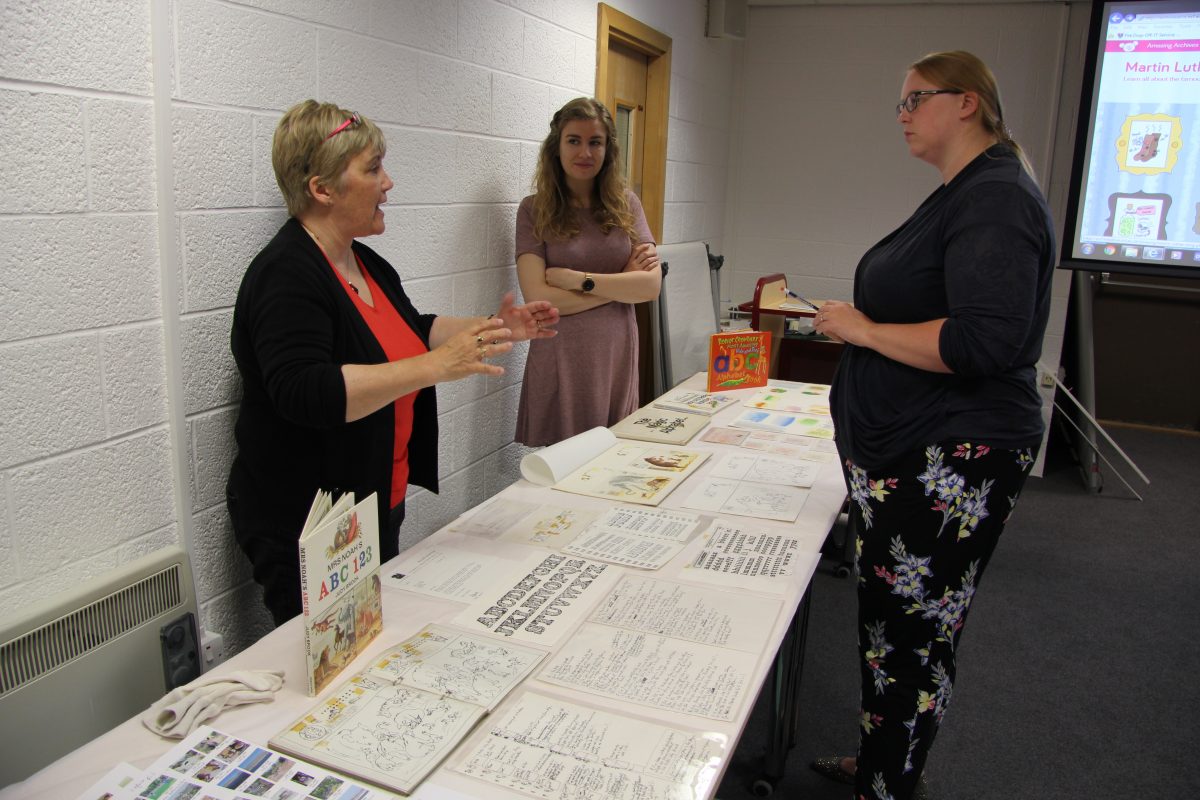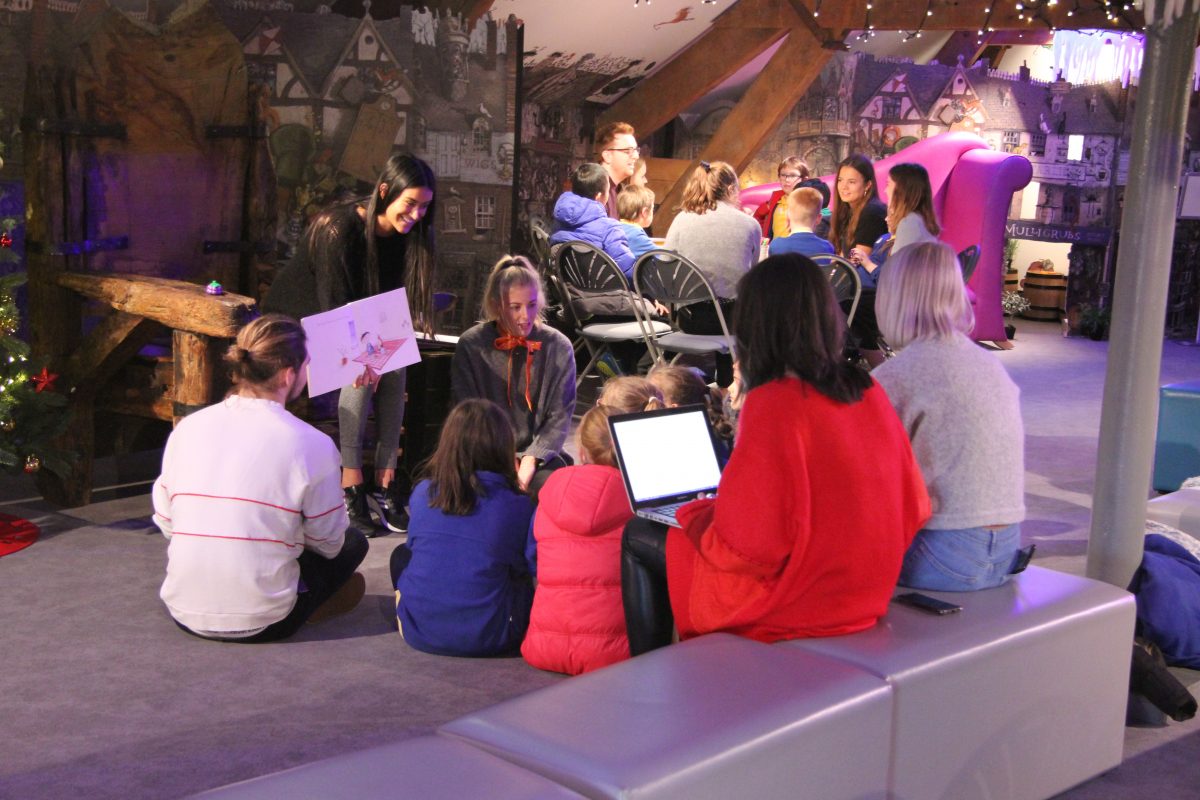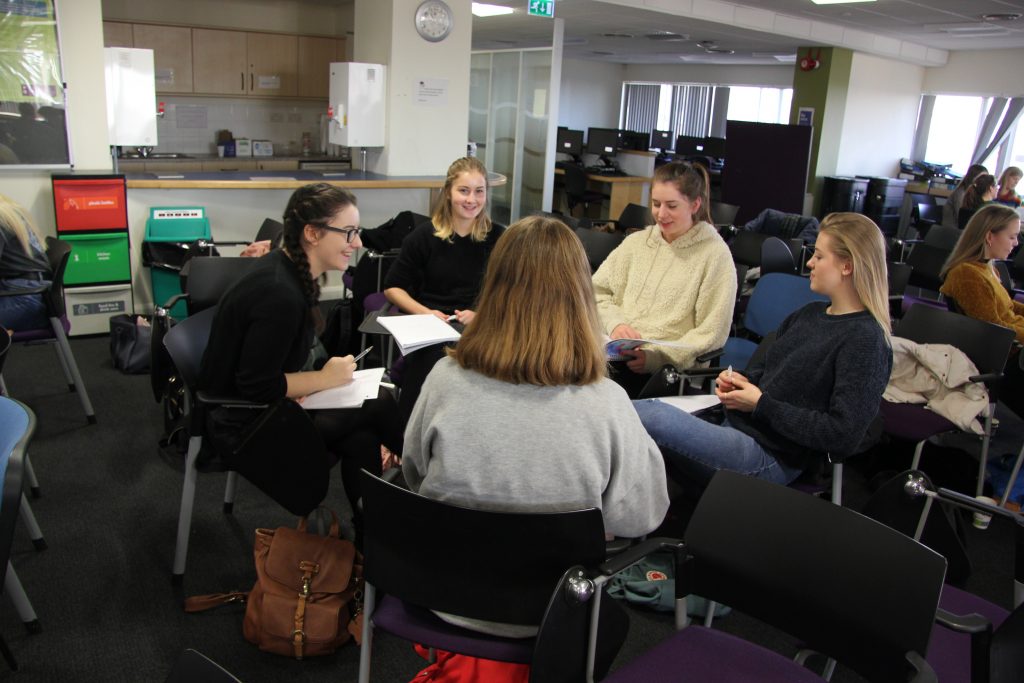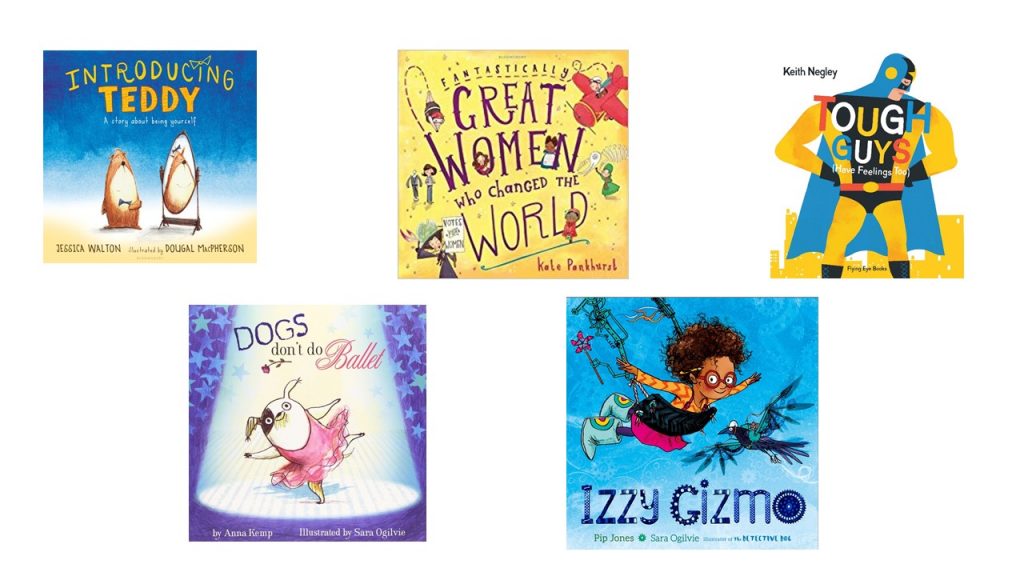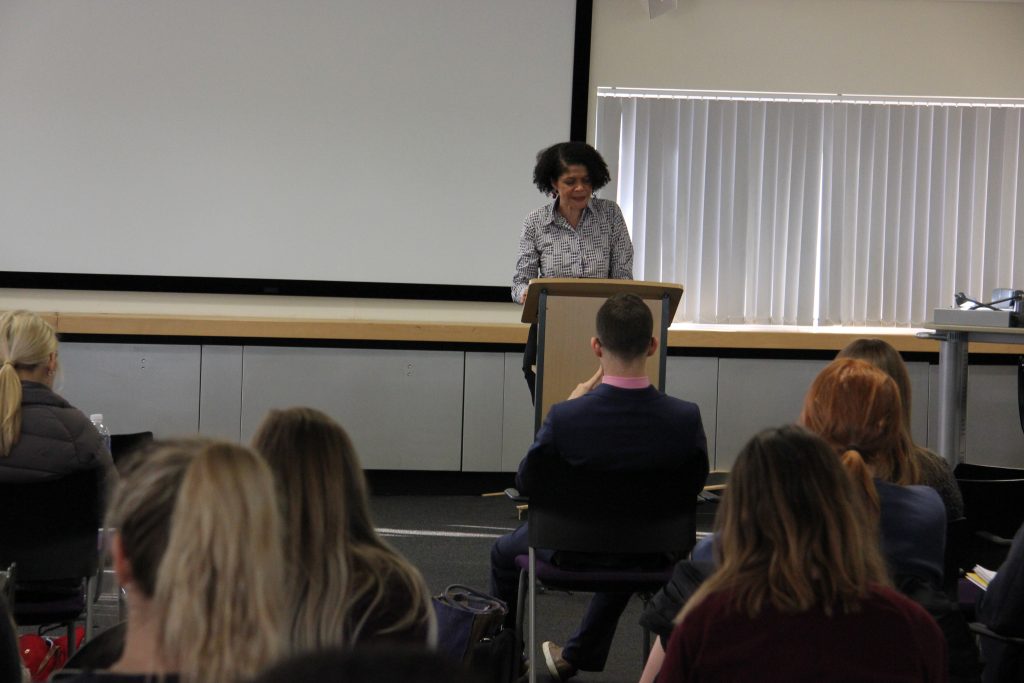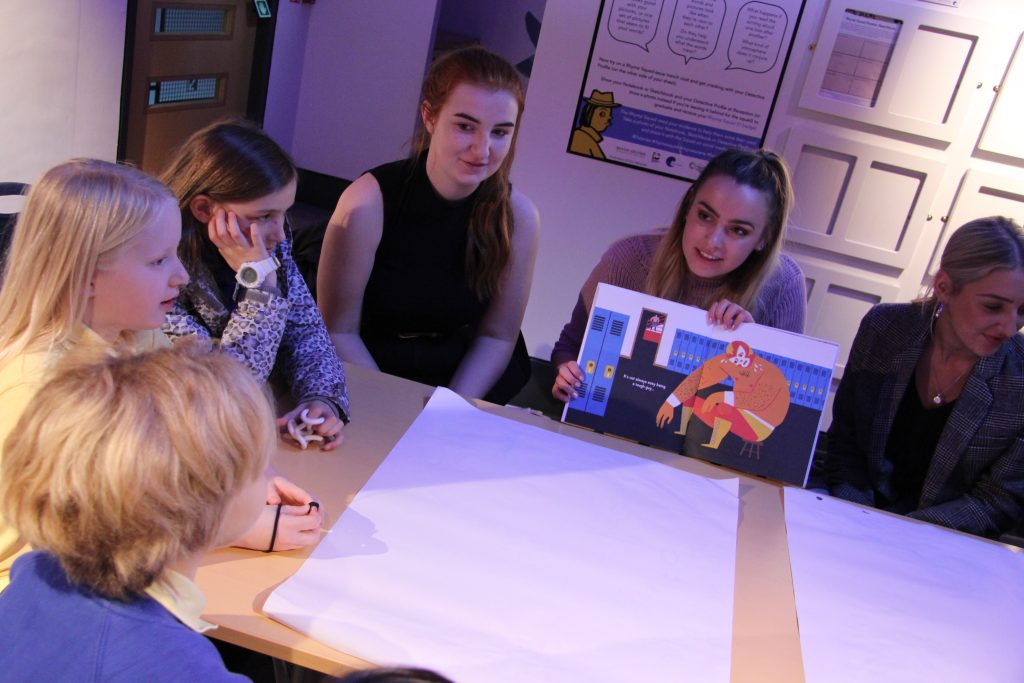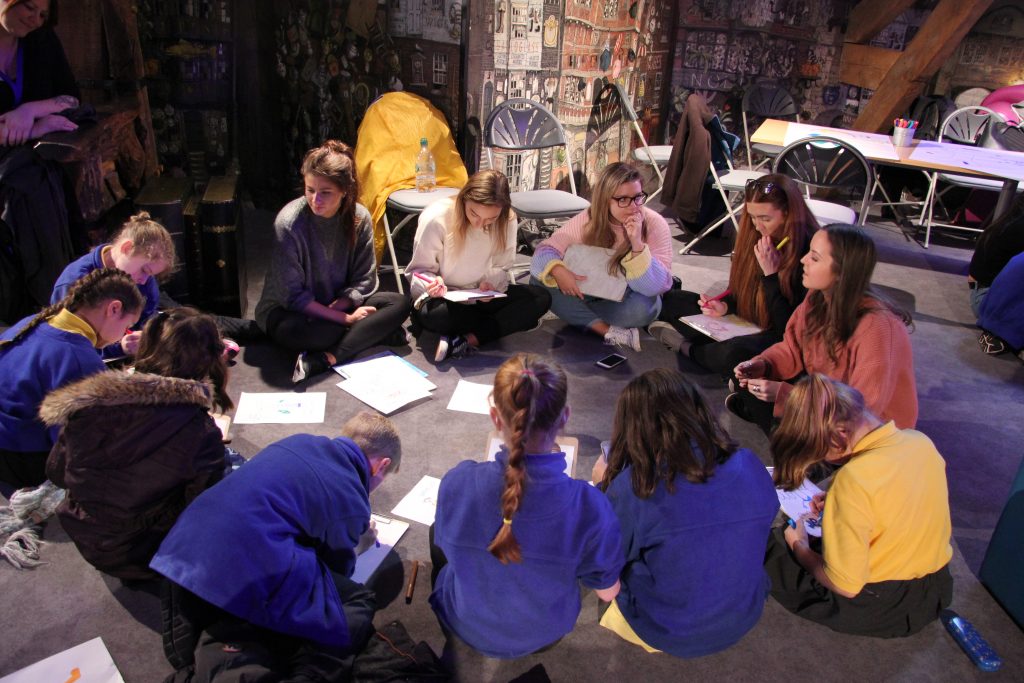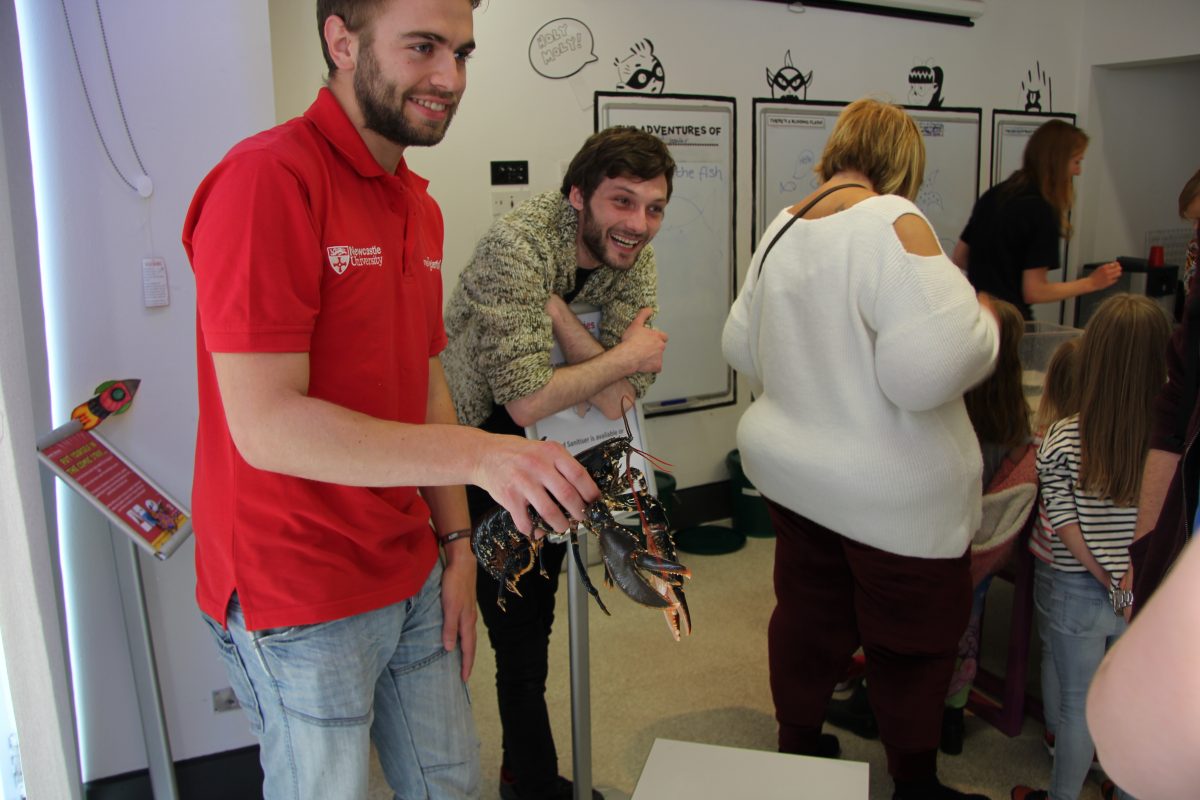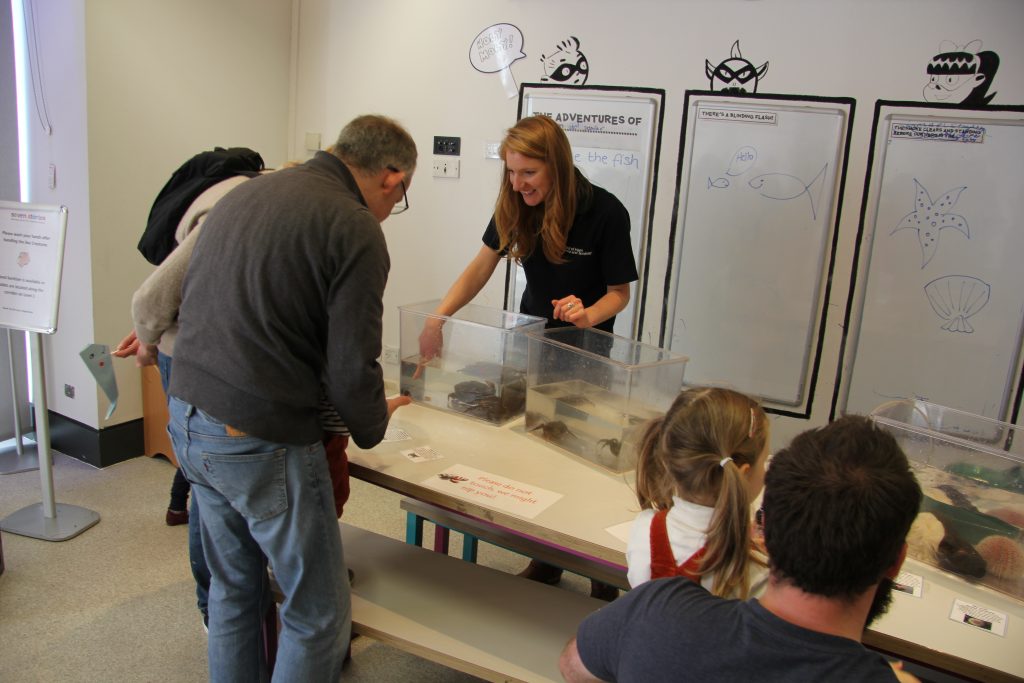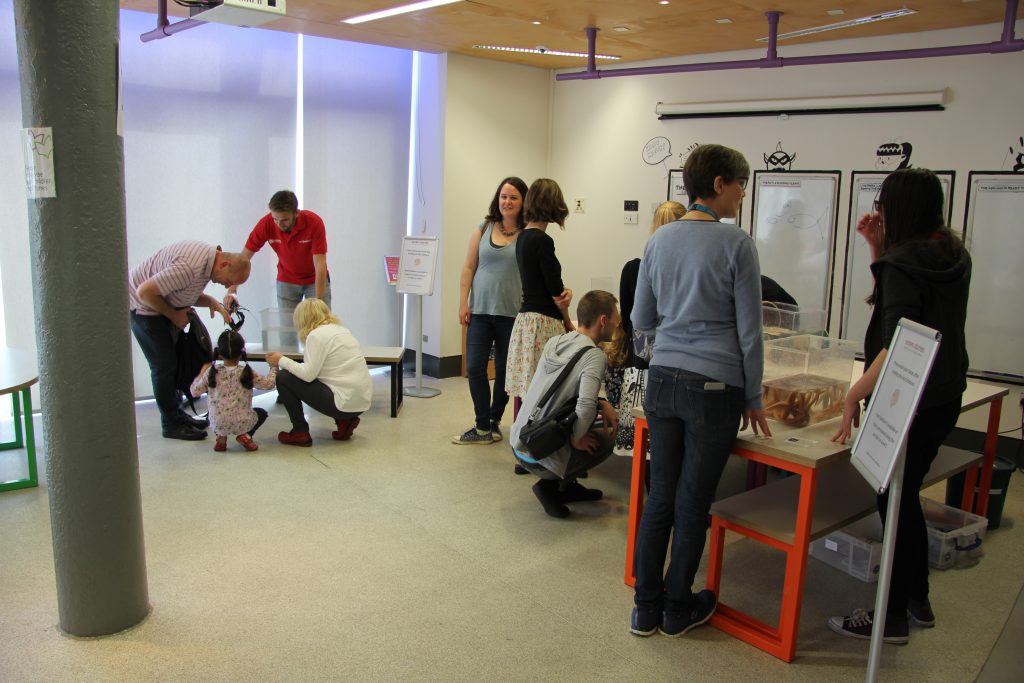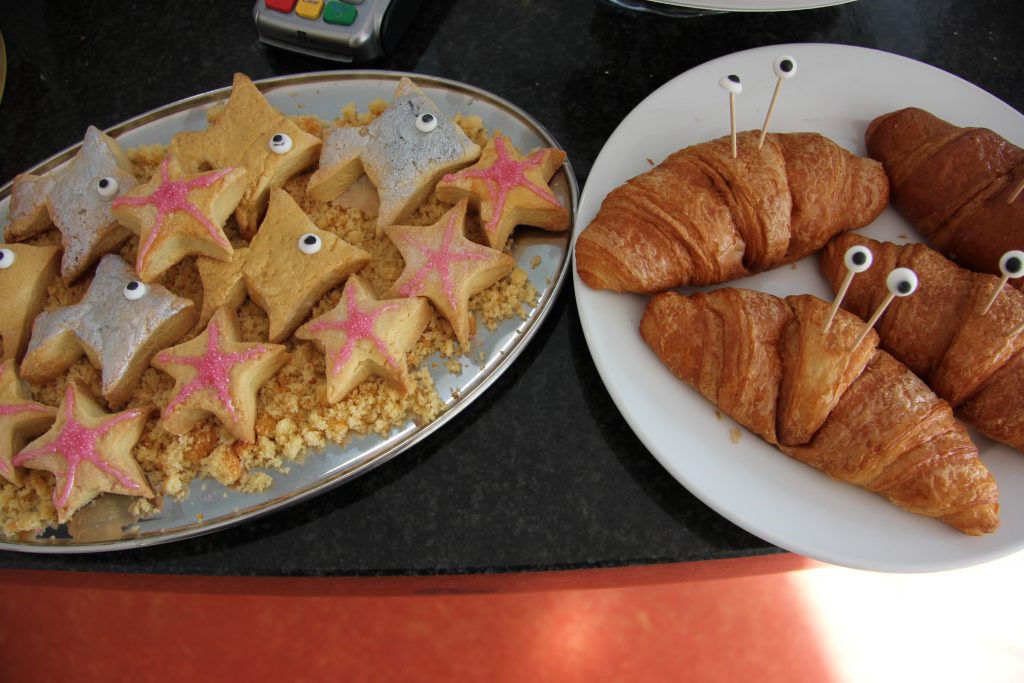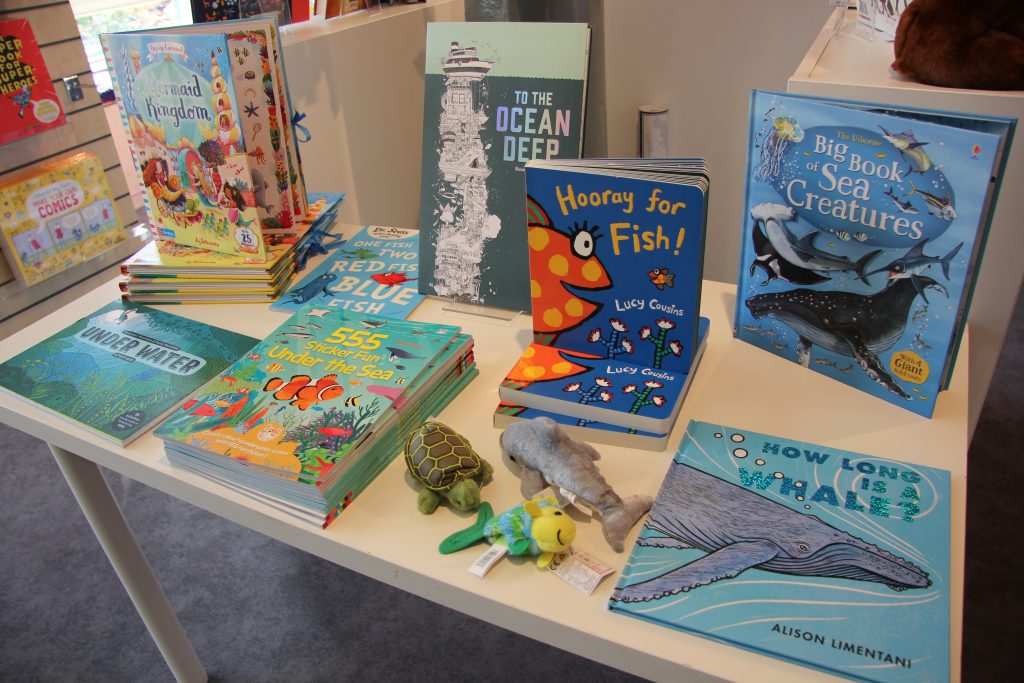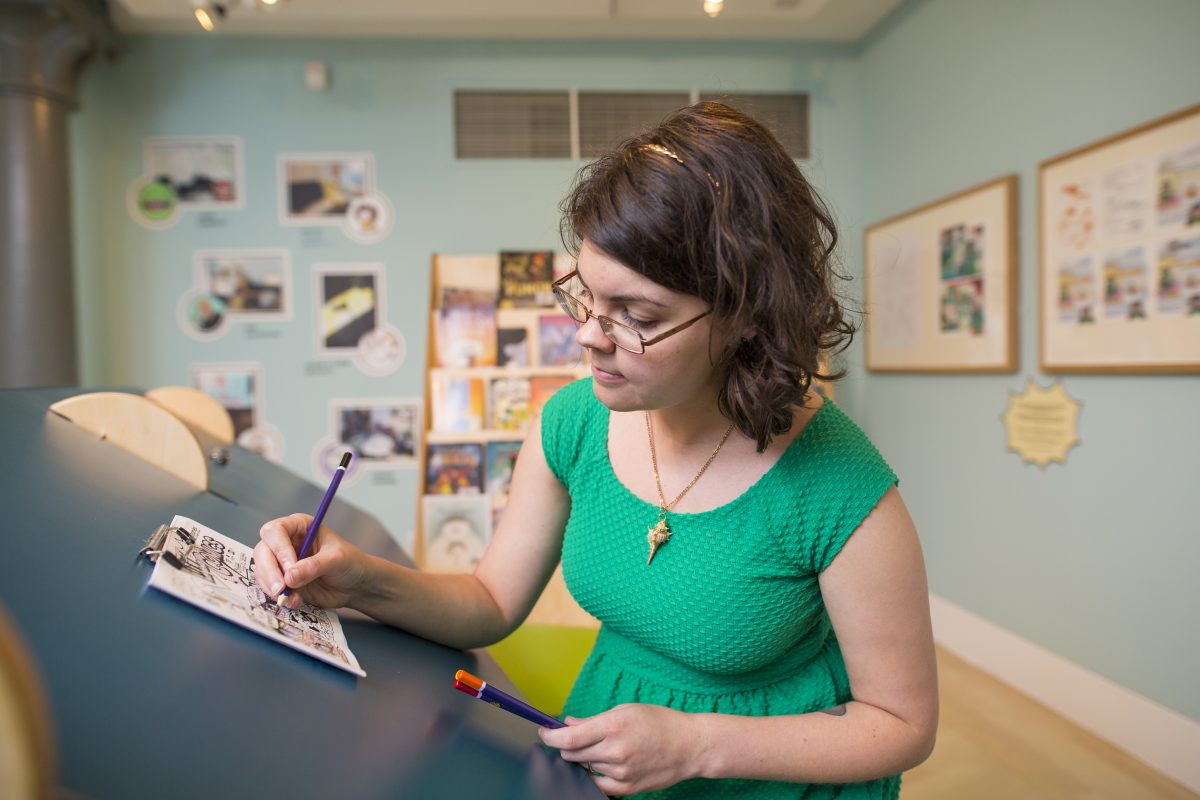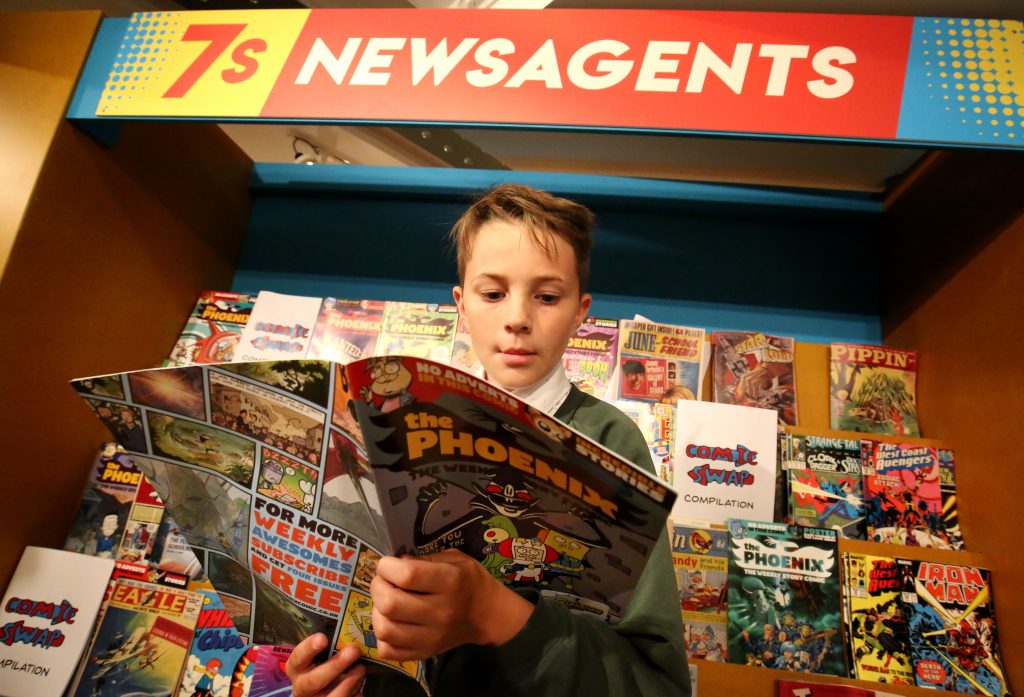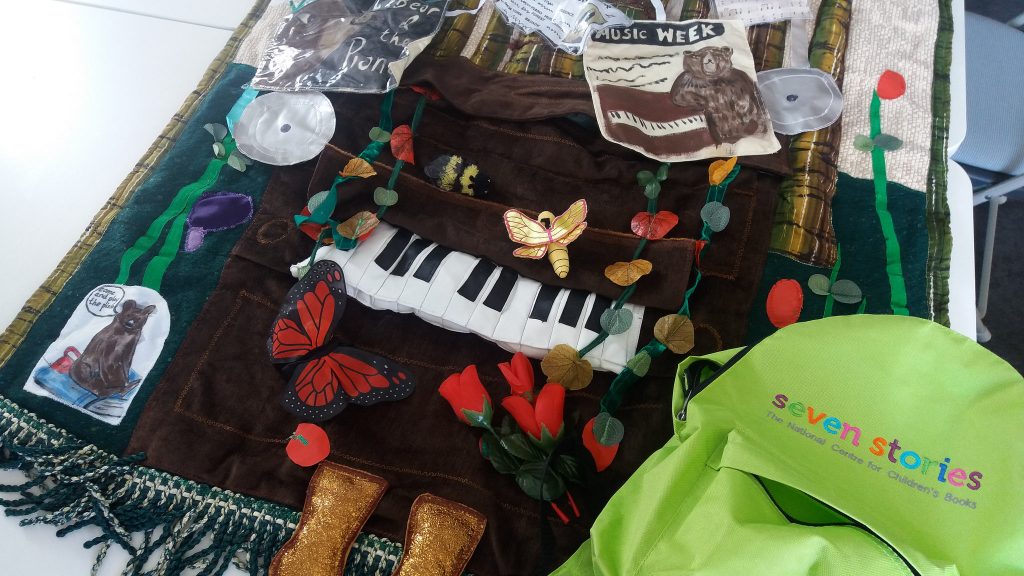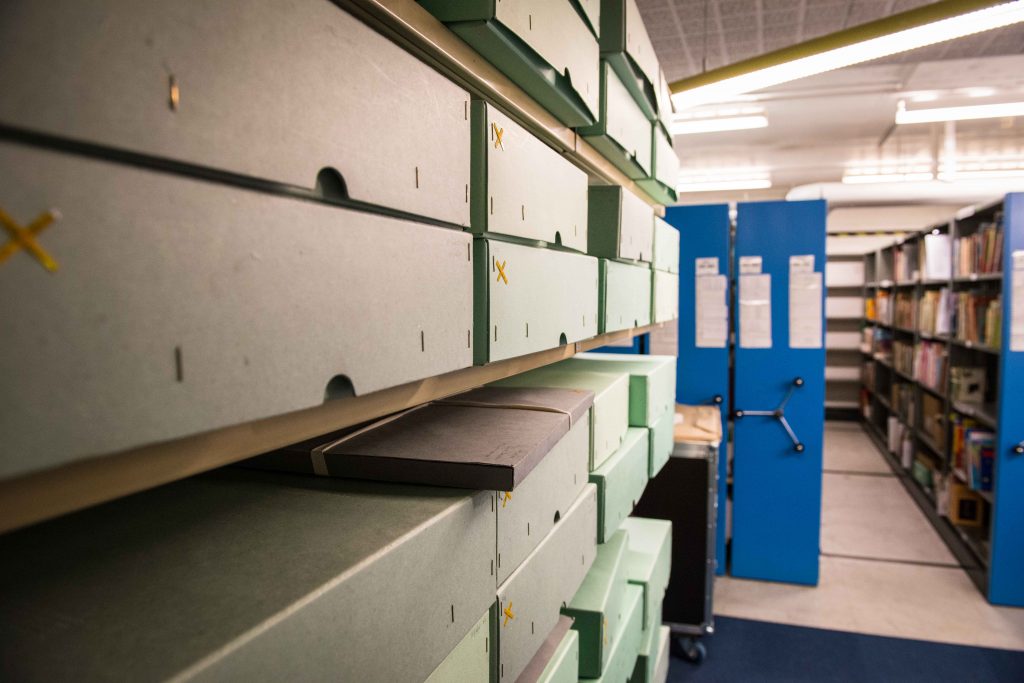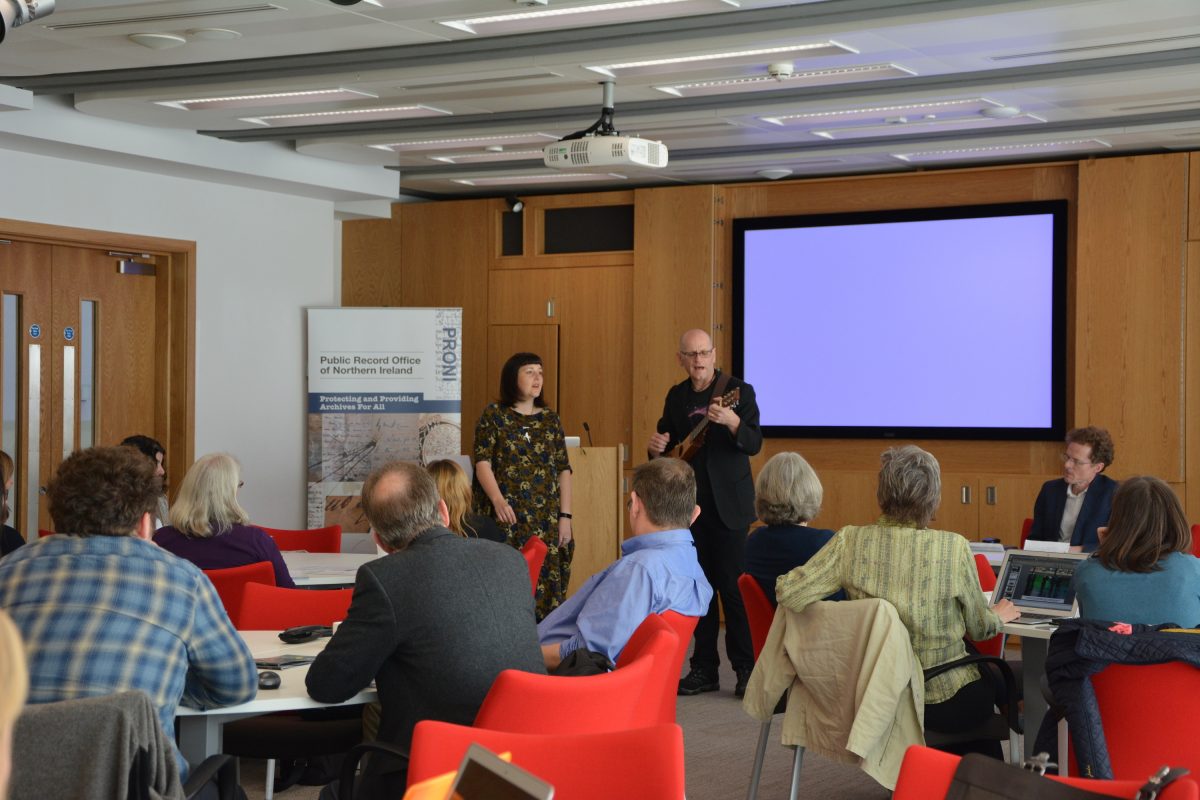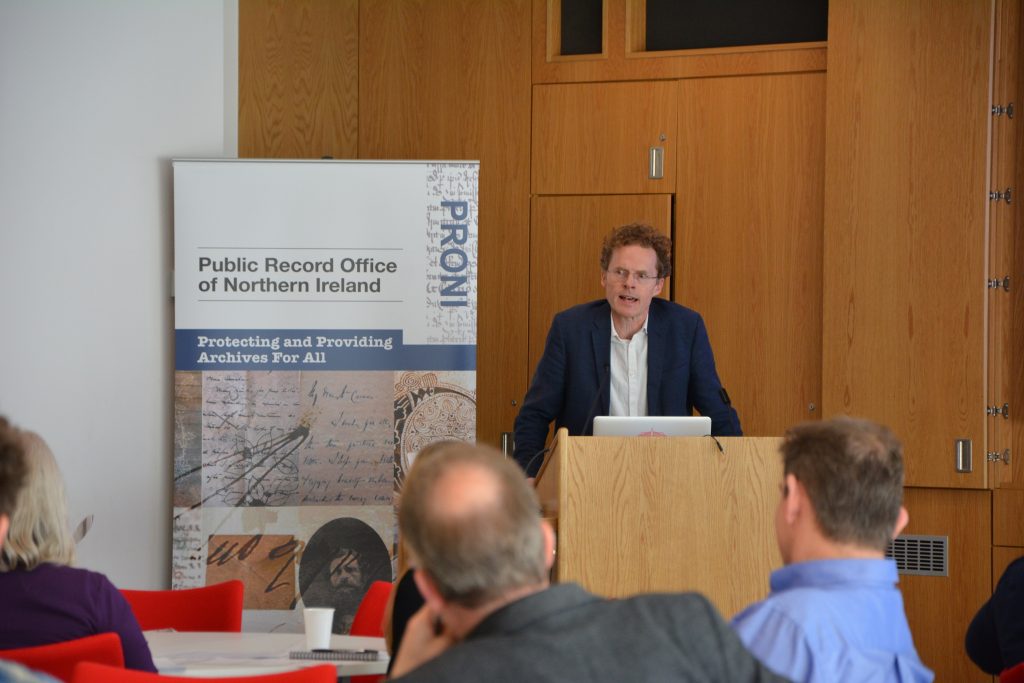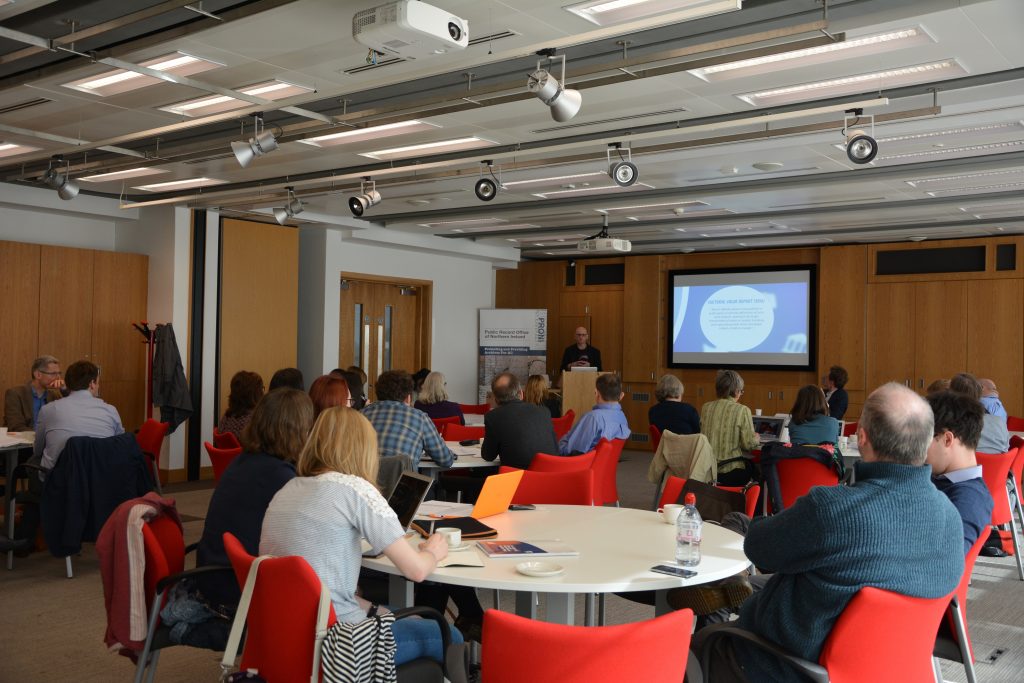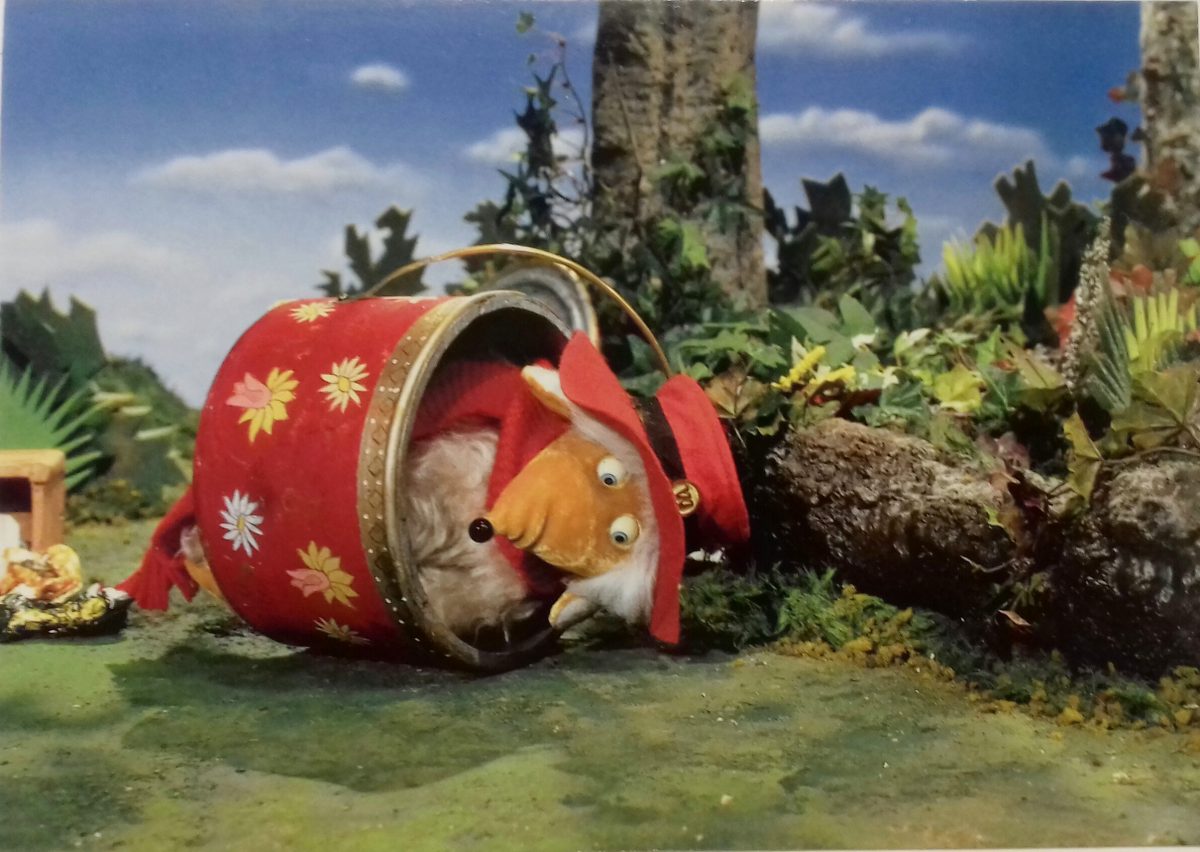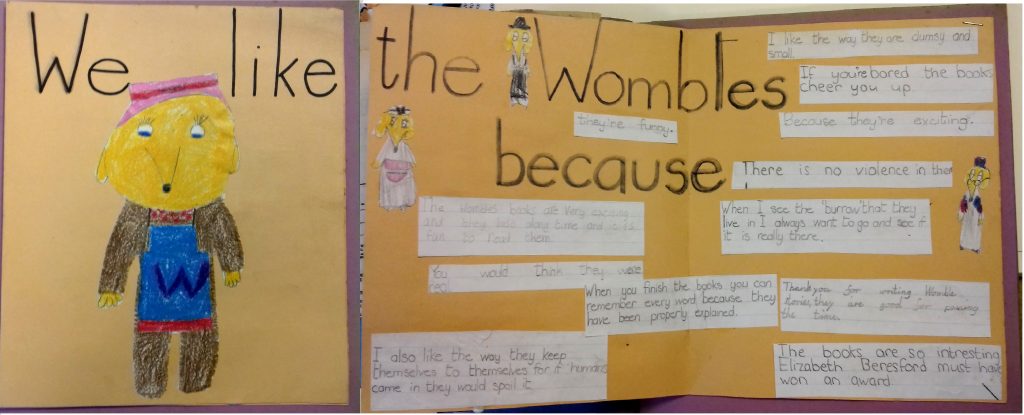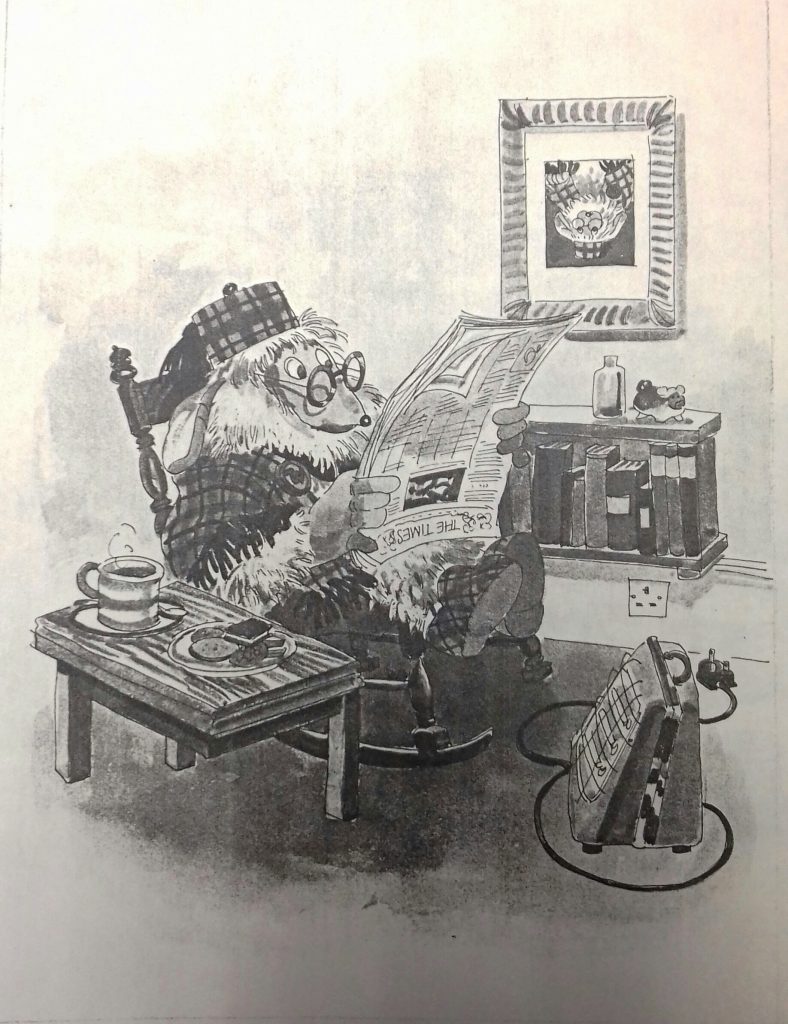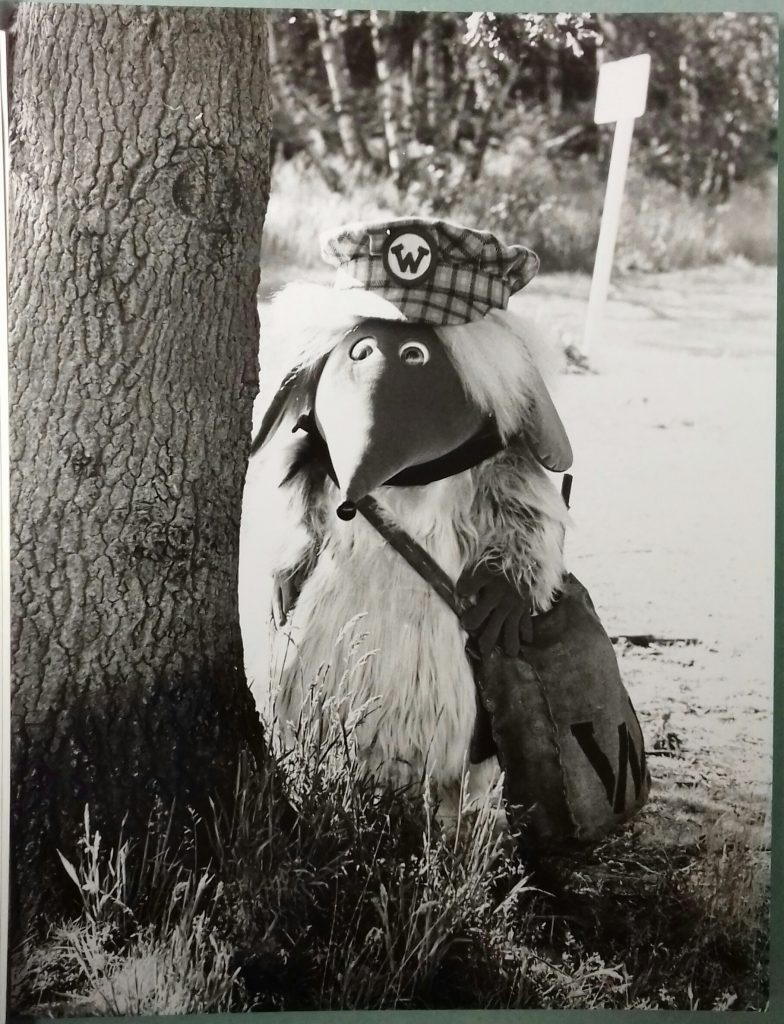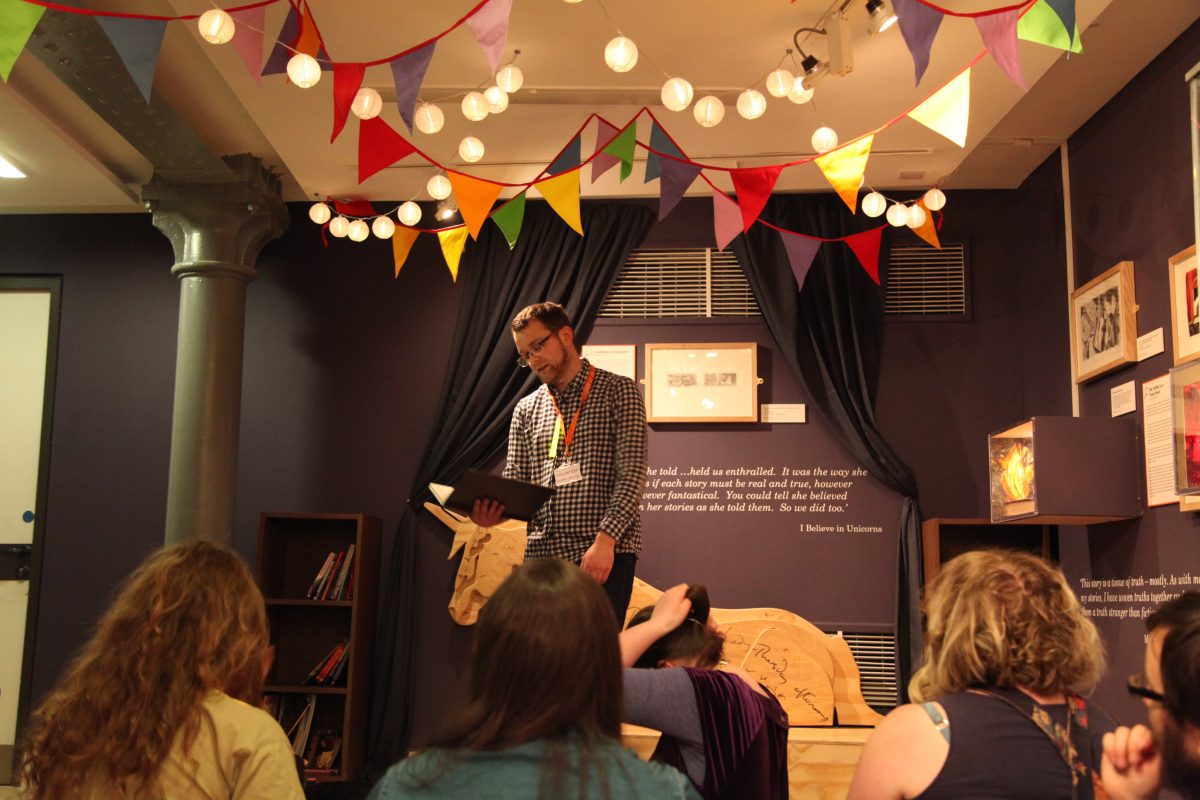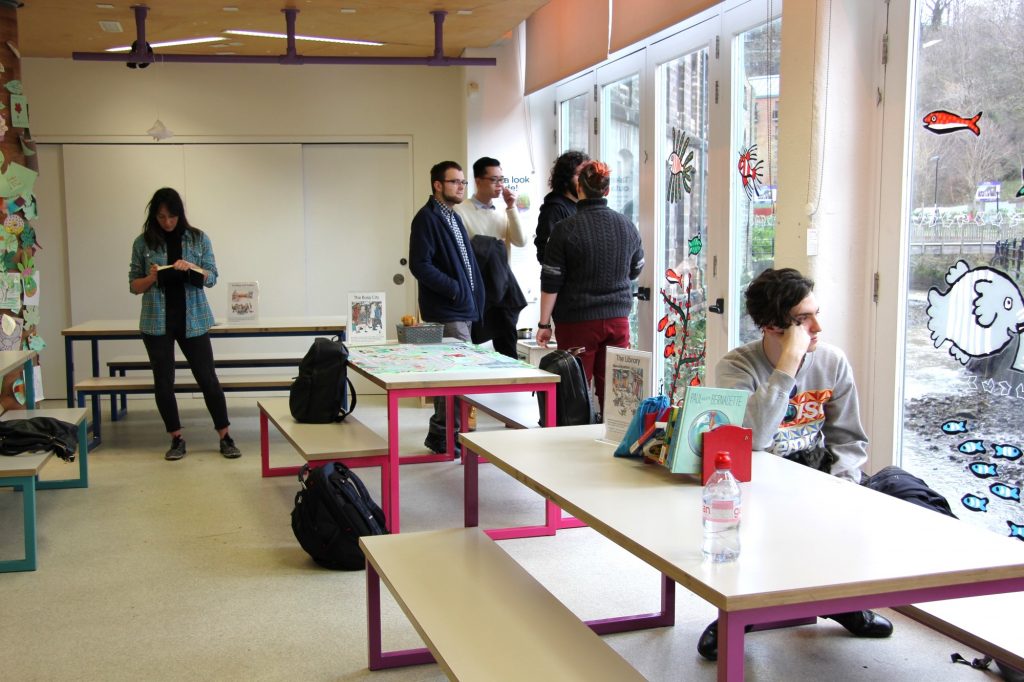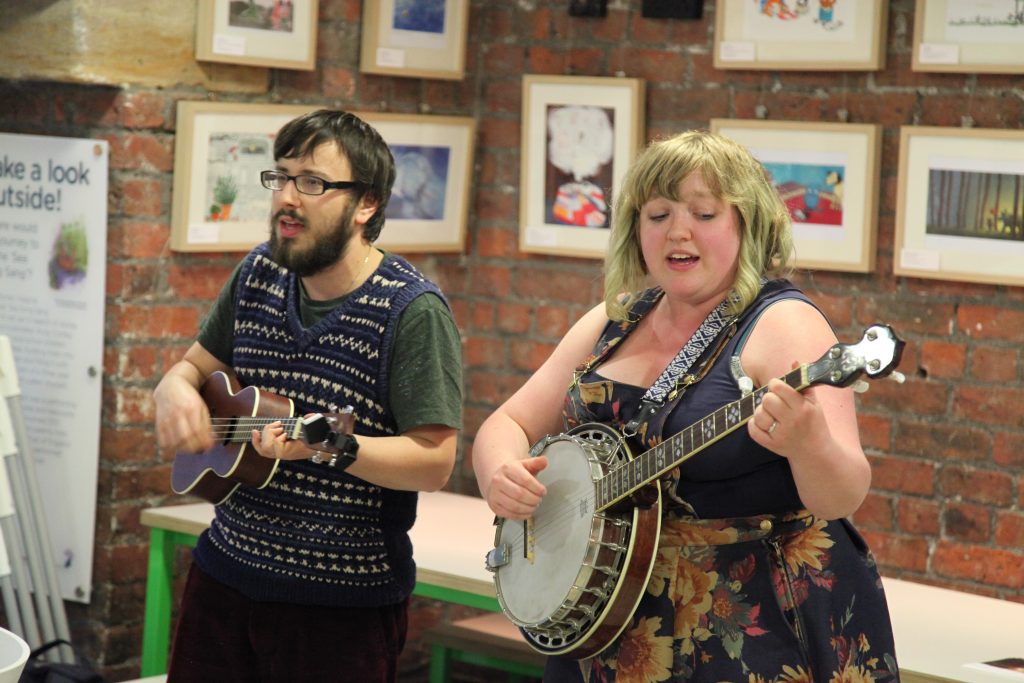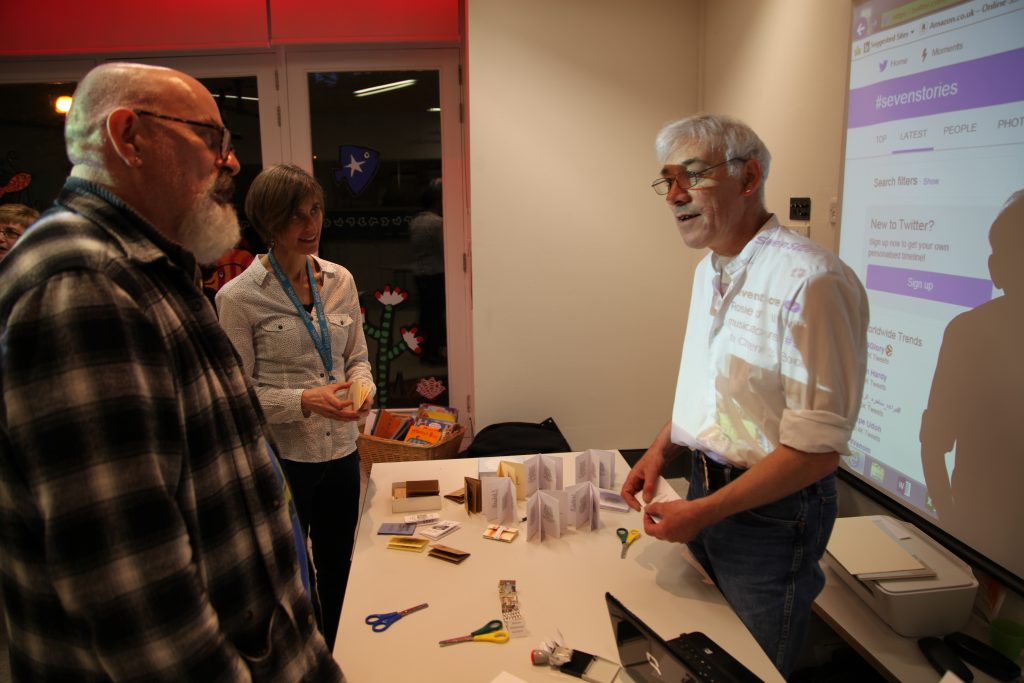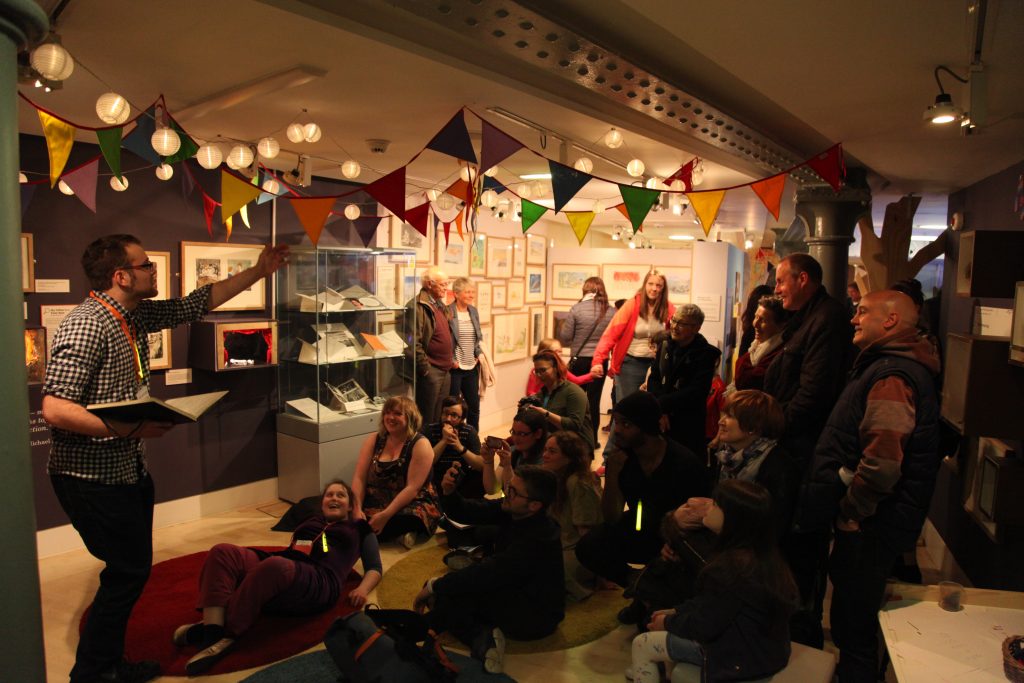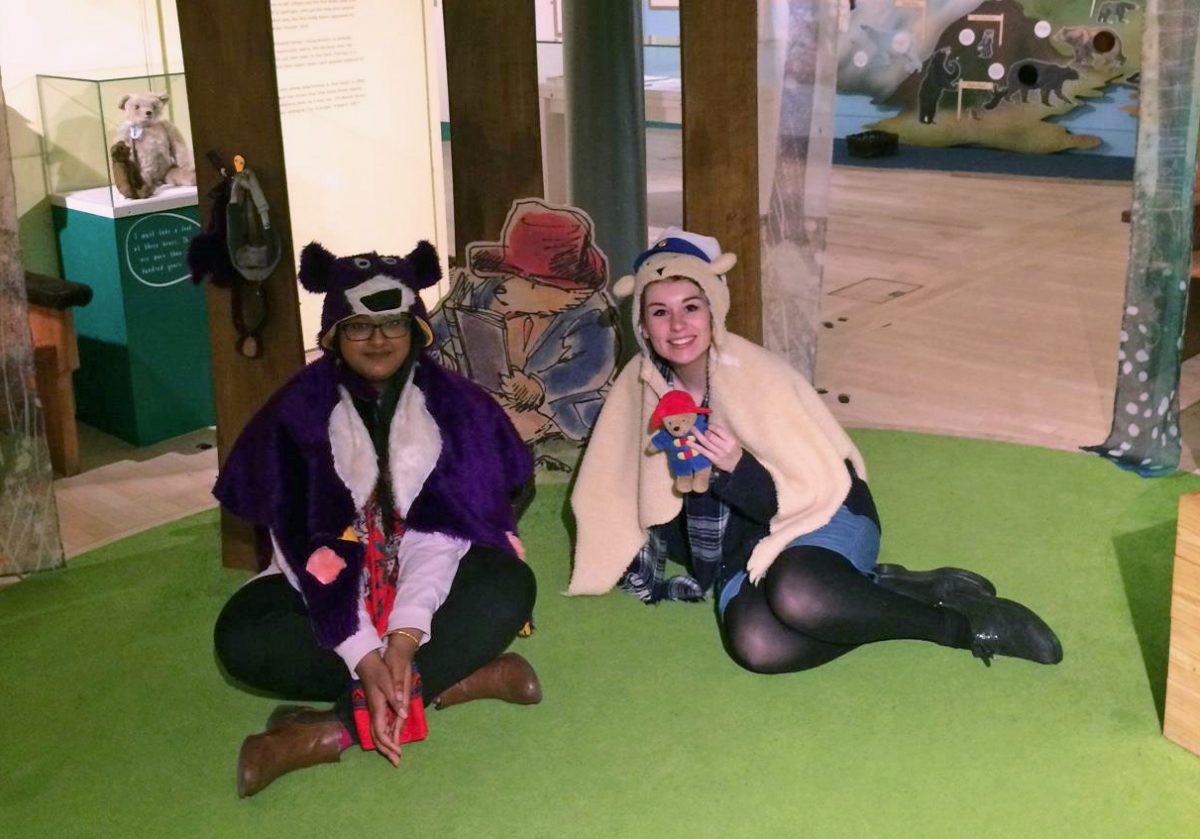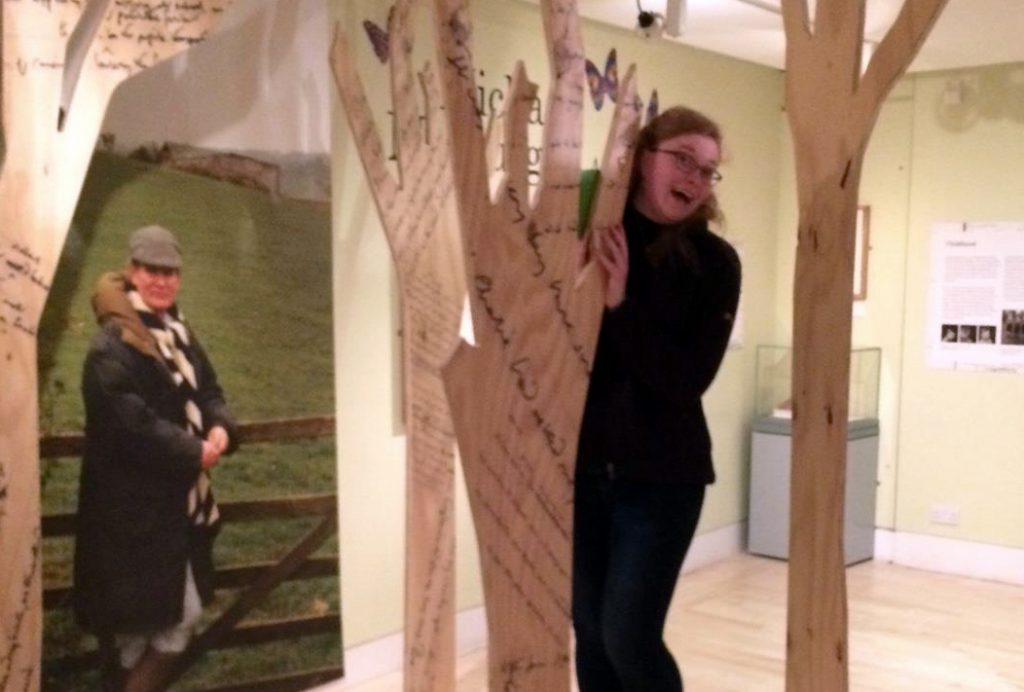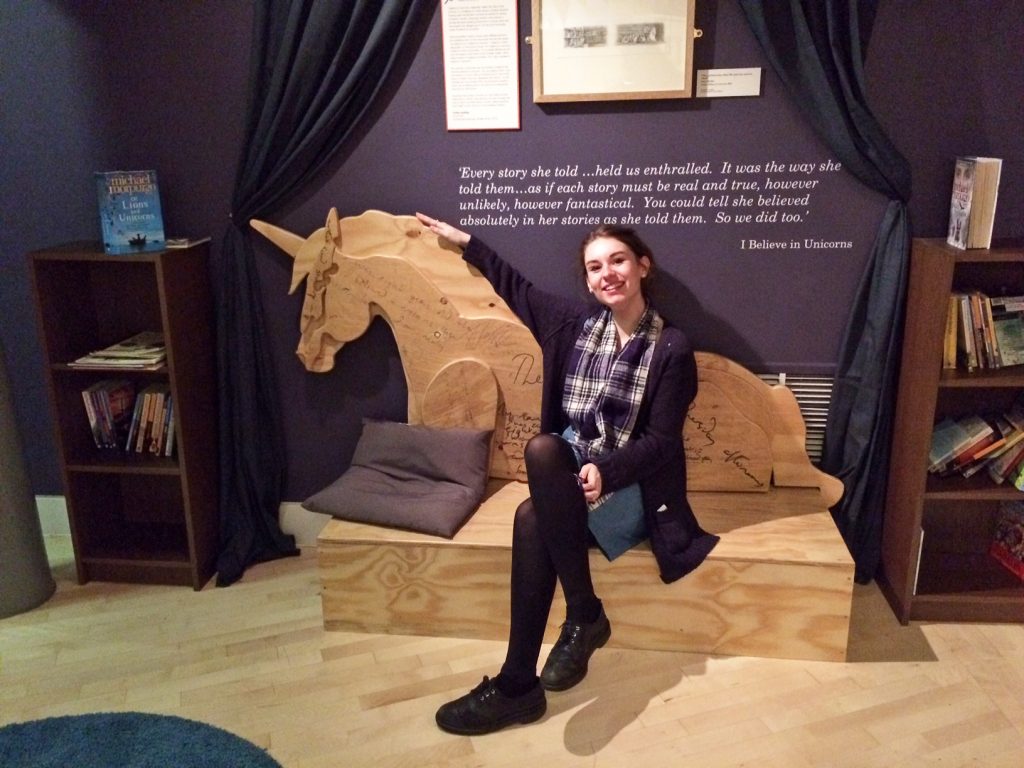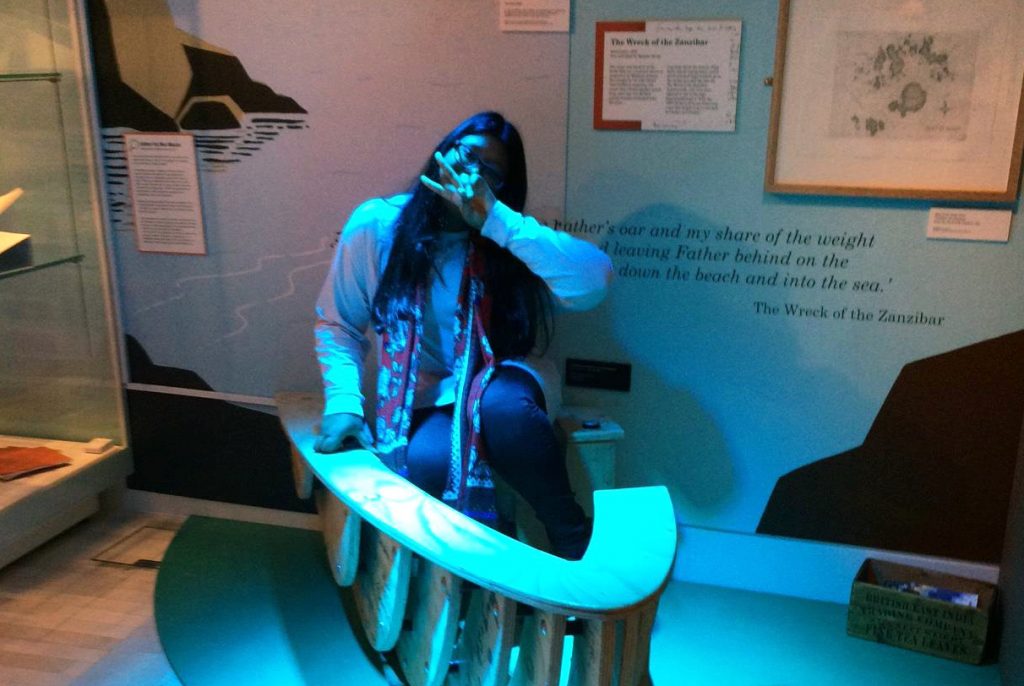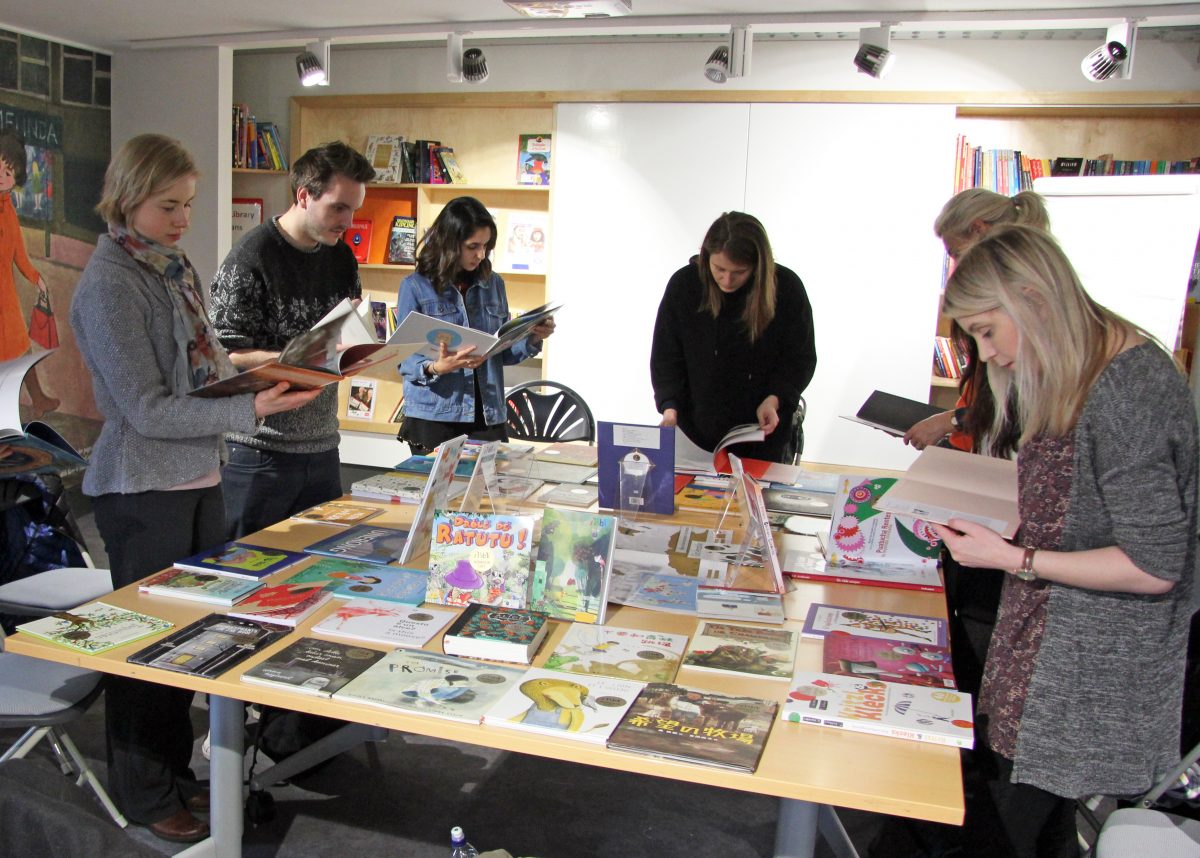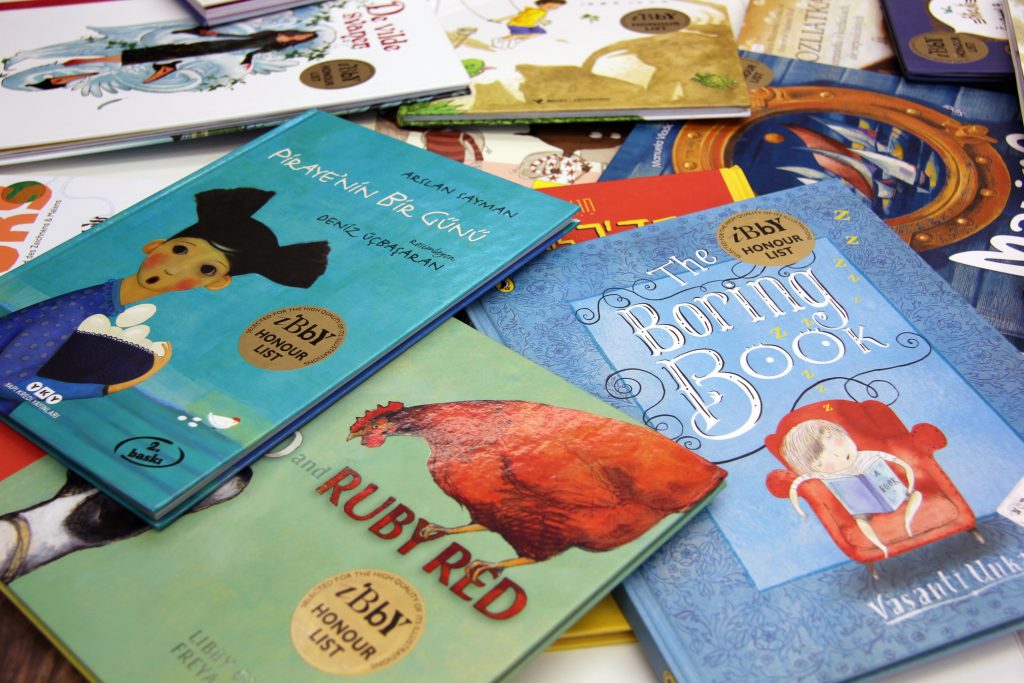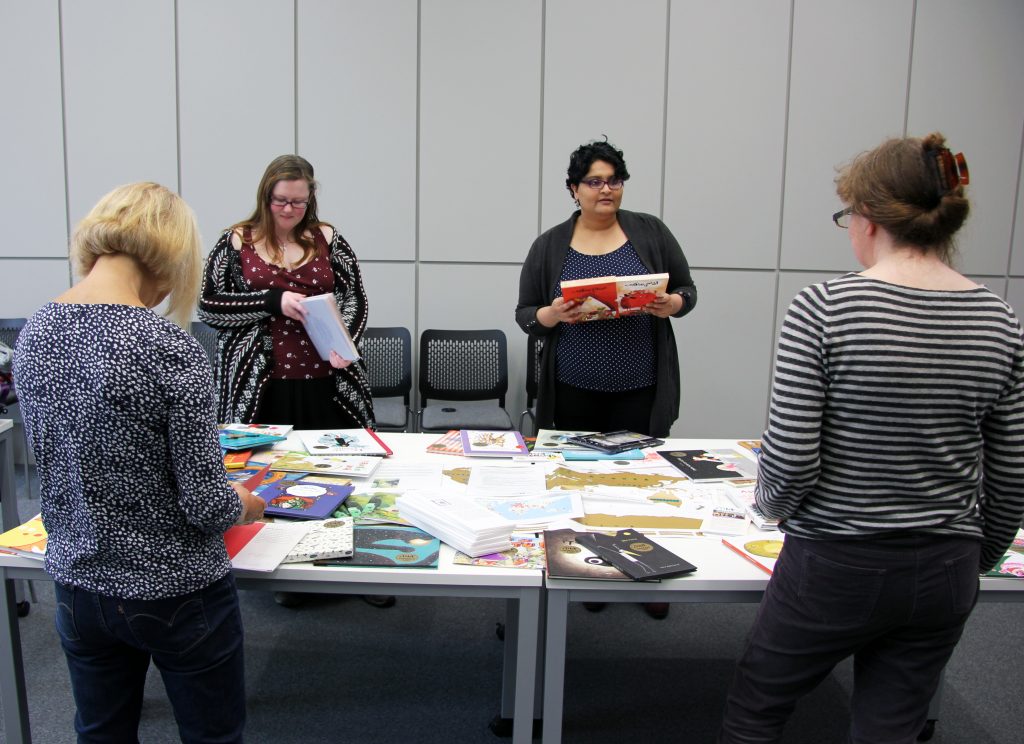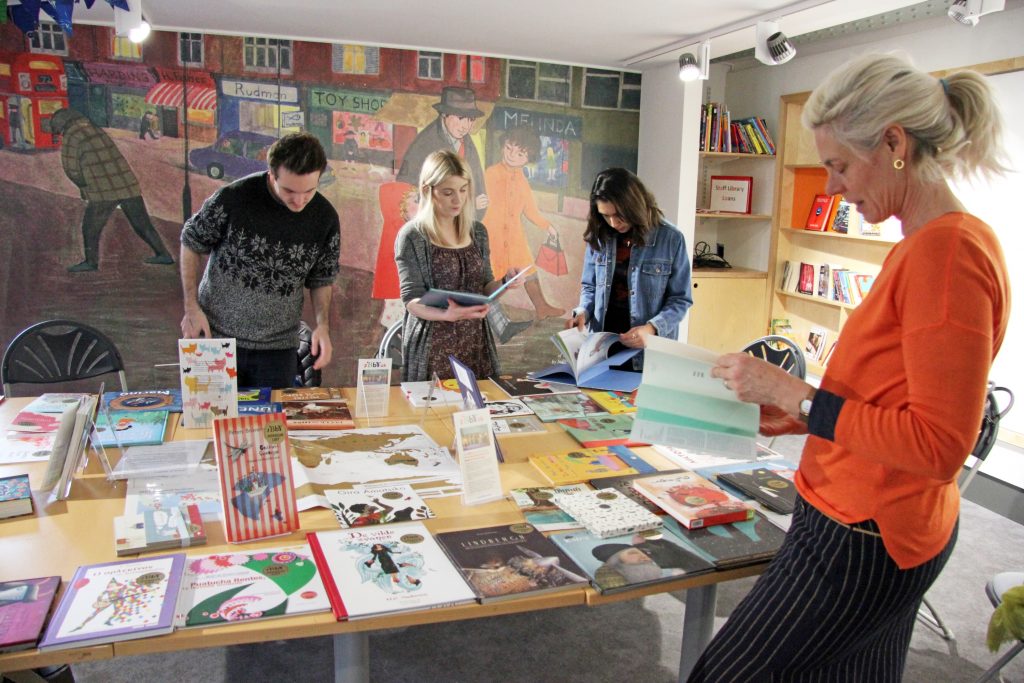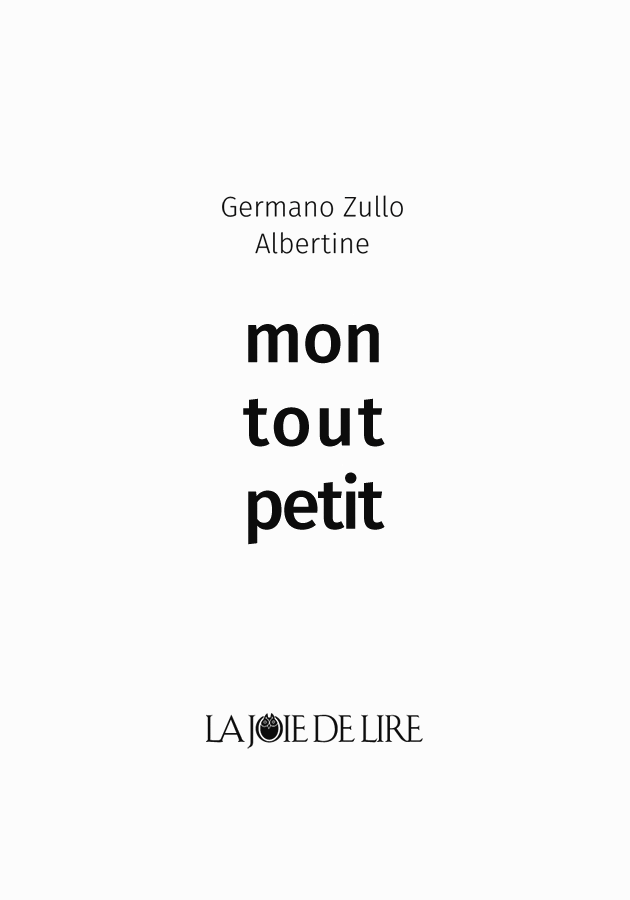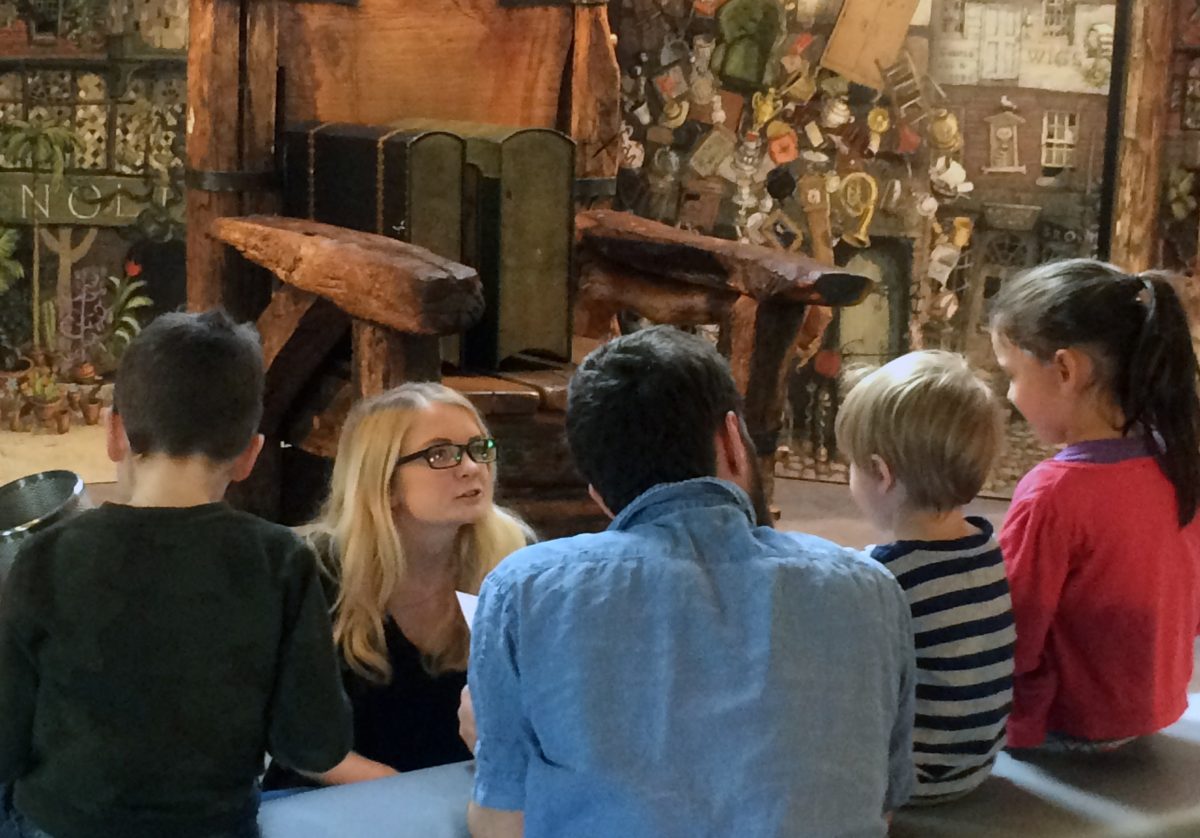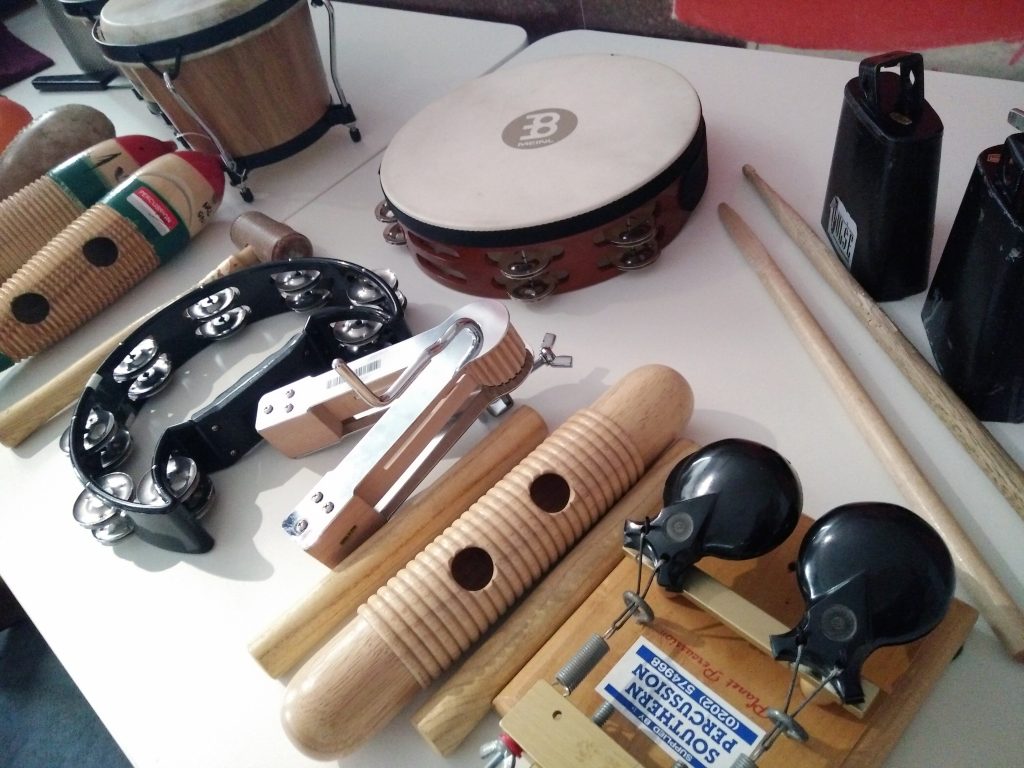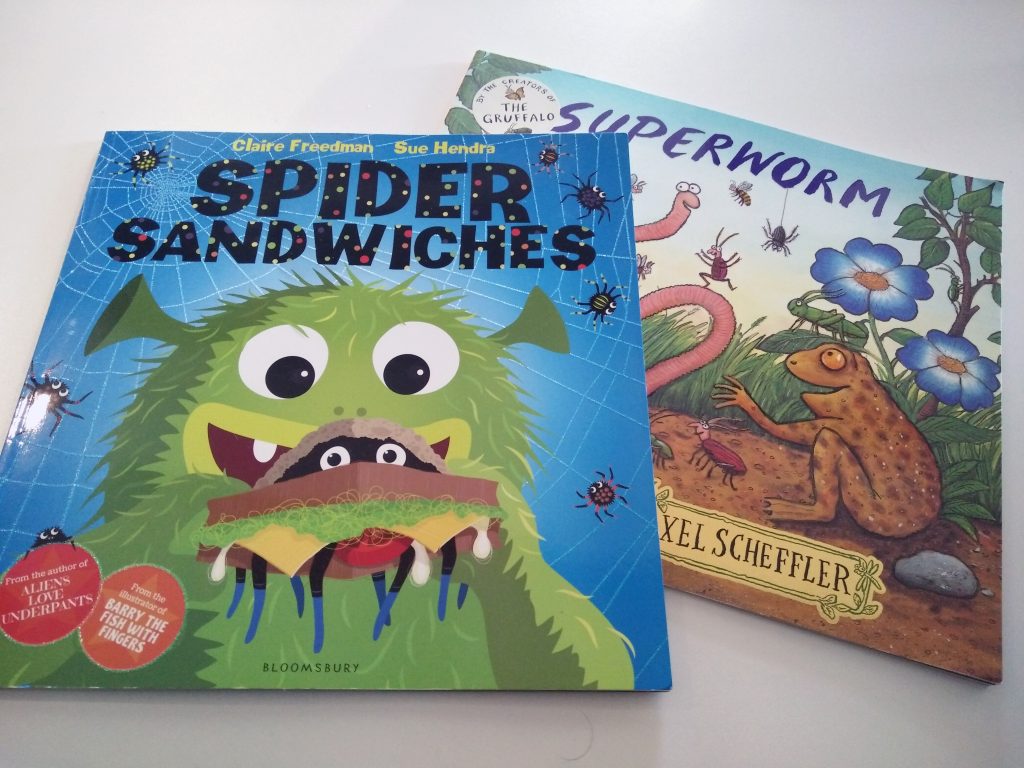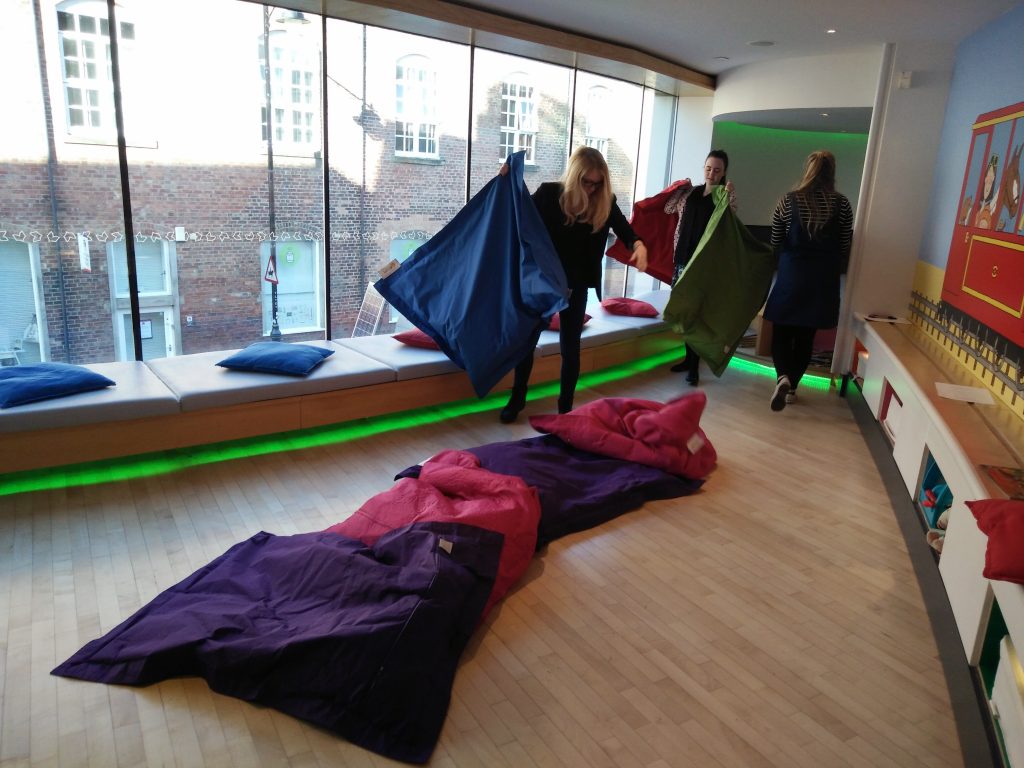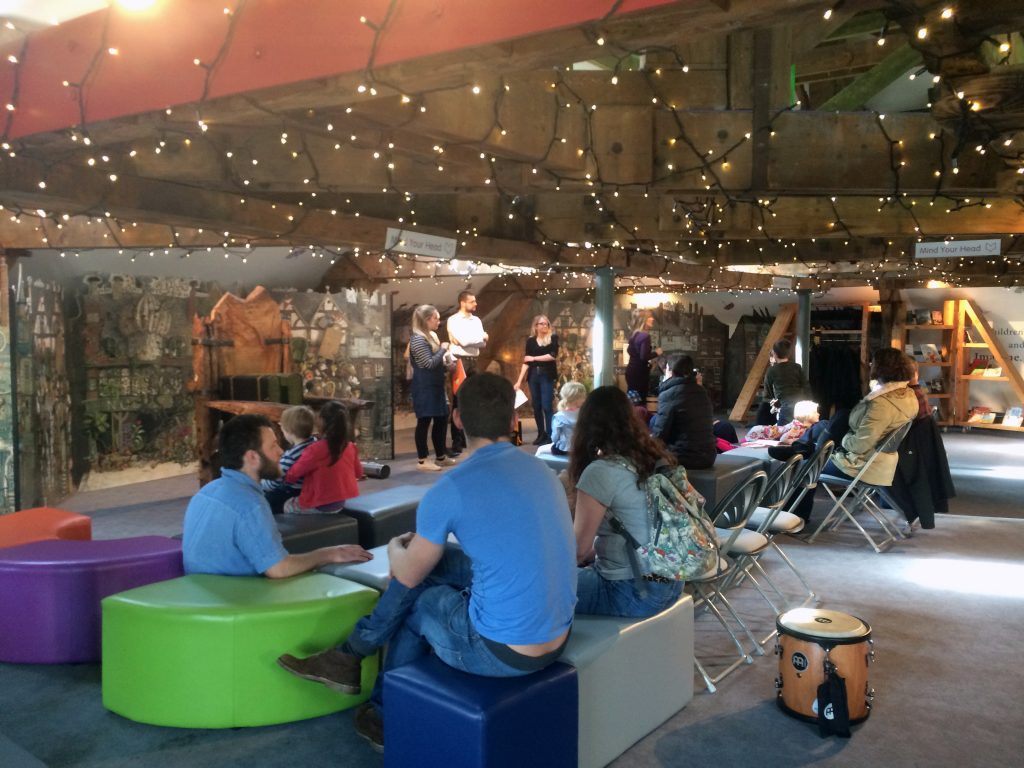In this post, Northern Bridge PhD student Amy Burnside reflects on her six-month placement at Seven Stories: The National Centre for Children’s Books in 2017. The Northern Bridge Doctoral Training Partnership is formed of Newcastle University, Durham University and Queen’s University Belfast and their strategic partners and is funded by the Arts and Humanities Research Council.
In June of last year, I packed up my books and my notes and closed the door to my office at Queen’s University Belfast for six months. As a Northern Bridge doctoral student I was given the opportunity to take up a placement with one of the consortium’s partner organisations and naturally, I jumped at the chance! I chose to work with Seven Stories for several reasons – firstly, books were foundational to my childhood, and my love of literature has seen me through two (and a half) degrees in the field. The thought of seeing some original material up close was exciting! Secondly, I liked the idea of working with an organisation that has strengths in public engagement, both through the visitor centre and at the archive. As the final year of my PhD roared into view, I was also aware of the need to plan for the next stage in my career, and I was keen to develop some skills beyond those which writing a thesis can offer.
So what have I been up to? The simple answer is LOTS of things!

When I first arrived in Newcastle, the team at Seven Stories were gearing up for a changeover in one of their gallery spaces. During these times they need all-hands-on-deck to get things ready for a new exhibition, and so I was kitted out in steel-toed boots and put to work! I was able to assist with de-installing the Michael Morpurgo exhibition (by taking artwork off the walls, scraping off vinyl lettering, changing light-bulbs and dismantling built props) and installing the Comics exhibition (almost the same in reverse!). It was great to start my time at the visitor centre, getting some very hands-on experience in the public-facing side of museum work. Later on, I had a chance to do some audience research in the Comics gallery, and it was lovely to see families and children engaging with the space and the objects on display.
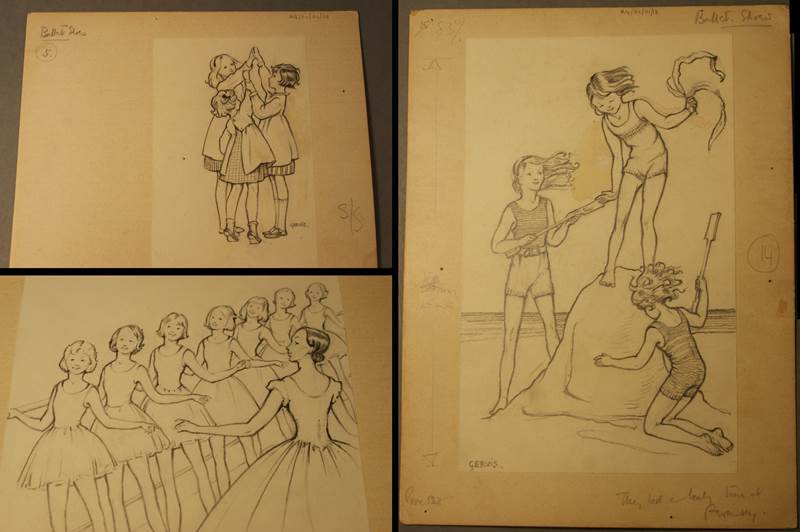
After things had calmed down a bit, it was time to learn how to use CALM, the management system used by the archive to record their holdings. Once I had got to grips with this, I was able to tackle my first collection – Noel Streatfeild’s – which included original manuscripts, correspondence, and personal diaries. This was exciting for me as a life-long fan of Ballet Shoes, and the collection granted me a much better insight into Streatfeild’s writing practices, and the personal experiences which shaped her stories. It was incredibly satisfying to take charge of the collection, ensuring it was organised, repackaged and catalogued in an accessible way, while respecting as much of the original order as possible. Even more satisfying was getting to see the material in use before I left. You can read more about the collection in my post for the Seven Stories blog.
After completing work on the Streatfeild collection, I spent a bit of time in the world of the Wombles sorting through some of Elisabeth Beresford’s huge collection. The Wombles material had been worked on by several volunteers before me, and will probably require the attentions of a few more before it is complete. I realised just how lengthy the cataloguing process can be in a collection of that scale, and I was better prepared for the final collection I worked on, which ran to almost 50 boxes! Working on this was especially exciting as I knew the material would be used extensively – I was given the chance to select items and write some copy for the collection highlights page, as well as liaising with senior curator, Gill Rennie, and presenting some of the material to various teams in the organisation. Unfortunately I can’t say much more about this mystery collection yet, but keep your eyes peeled for an exciting new exhibition this summer!
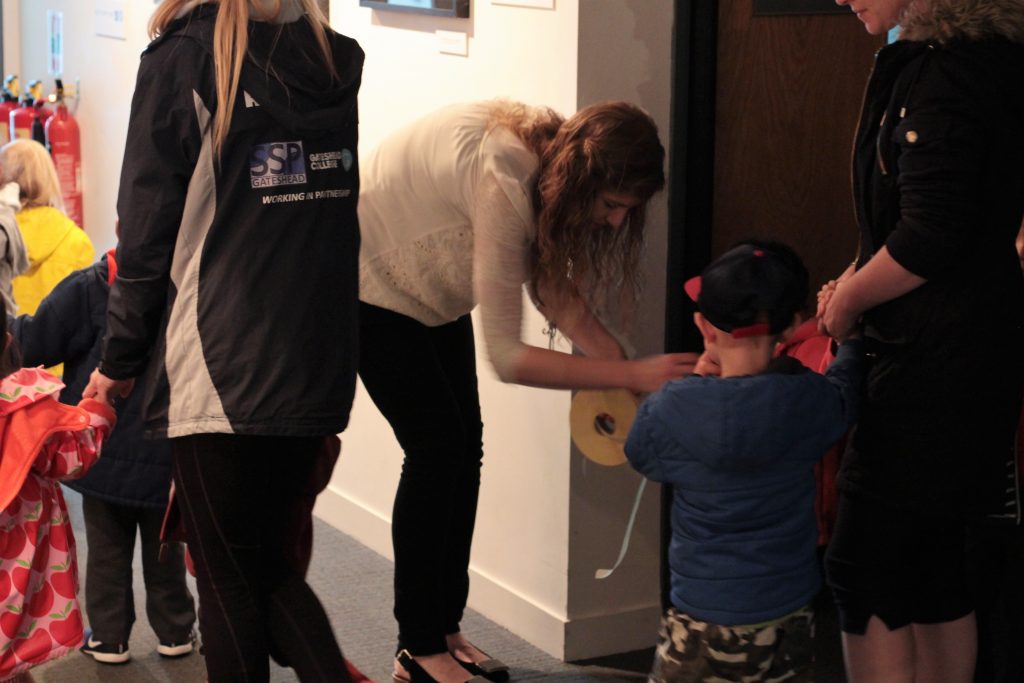
Although work at the archive took up the majority of my time, the team gave me the chance to get involved with lots of varied activities in the organisation, from working at white glove handling sessions (at a wedding, a conference and a schools project) to helping at a celebration event for the Living Books project. There was never a dull moment, and I’m really thankful to all the wonderful members of staff for their patience in showing me the ropes and sharing their fantastic knowledge of children’s literature, as well as making me feel right at home in the office.
I’m now back to normality in Belfast, finishing my thesis and missing the Seven Stories tea breaks. I learned so much during my placement, and would highly recommend applying for Northern Bridge funding – it’s a fantastic opportunity to test the waters of research-adjacent careers, while completing your thesis. I would come back to Seven Stories tomorrow if I could, so here’s hoping it won’t be the last you’ll see of me!
Amy Burnside
Thanks Amy! Everyone at Seven Stories really appreciated all your hard work. This was a really successful first Northern Bridge placement experience for Seven Stories, so much so that we’ve just welcomed our second placement student!


